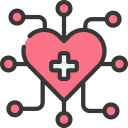Emerging AI Technologies Enhancing Patient Care
In recent years, artificial intelligence (AI) has emerged as a powerful force revolutionizing the healthcare landscape. Innovative AI-driven tools and solutions are increasingly being integrated into patient care, transforming how clinicians diagnose, treat, and manage diseases. These technological advancements not only streamline healthcare workflows but also support more personalized and effective care. As AI technologies continue to evolve, their potential to improve patient outcomes, optimize resources, and address complex medical challenges becomes increasingly evident.

Deep learning algorithms, a subset of AI, have significantly advanced the field of medical imaging by automating the detection of abnormal findings in X-rays, MRIs, and CT scans. These models are trained on enormous datasets to recognize and differentiate between healthy and pathological tissue. By learning from a multitude of case studies, they enable radiologists to spot conditions such as tumors, fractures, or degenerative diseases with greater precision. As a result, deep learning contributes not only to faster diagnosis but also to reducing the instances of oversight or misinterpretation that can occur during manual analysis.
AI-Powered Diagnostics Revolutionizing Healthcare

Enhancing Patient Engagement and Empowerment
Intelligent Virtual Health Assistants
Virtual health assistants powered by conversational AI have become invaluable in guiding patients through their healthcare journeys. These tools provide 24/7 access to reliable health information, appointment scheduling, and medication reminders, bridging the gap between office visits. By offering tailored recommendations and answering queries, virtual assistants enhance patient understanding of their conditions and help them take an active role in managing their health effectively.
AI-Driven Patient Education Platforms
AI is redefining the delivery of patient education by customizing content to individual learning styles and preferences. Interactive platforms use adaptive algorithms to present complex medical information in easily digestible formats, such as videos, infographics, and personalized modules. This targeted approach ensures patients understand their diagnoses, treatment options, and preventive strategies, leading to higher adherence rates and better health literacy across diverse populations.
Personalized Monitoring and Feedback Systems
The adoption of AI-enabled remote monitoring devices allows for continuous tracking of patient health metrics from the comfort of home. These systems provide real-time feedback to patients about their progress, flagging deviations from care plans or suggesting behavioral adjustments. By facilitating ongoing communication between patients and healthcare teams, AI-powered monitoring strengthens adherence, supports early intervention, and empowers individuals to make informed decisions about their care.
Join our mailing list
